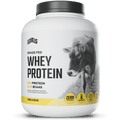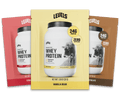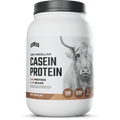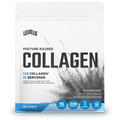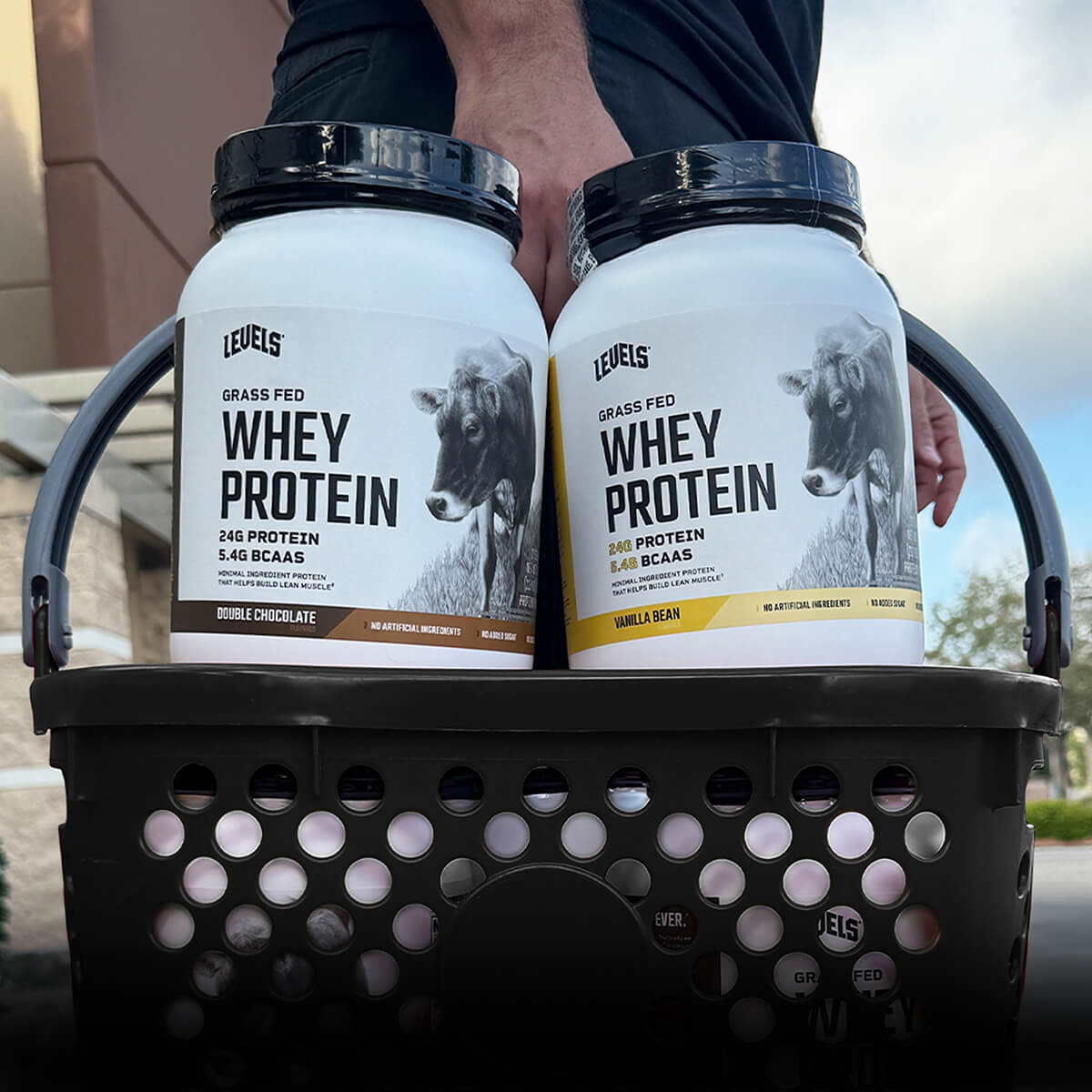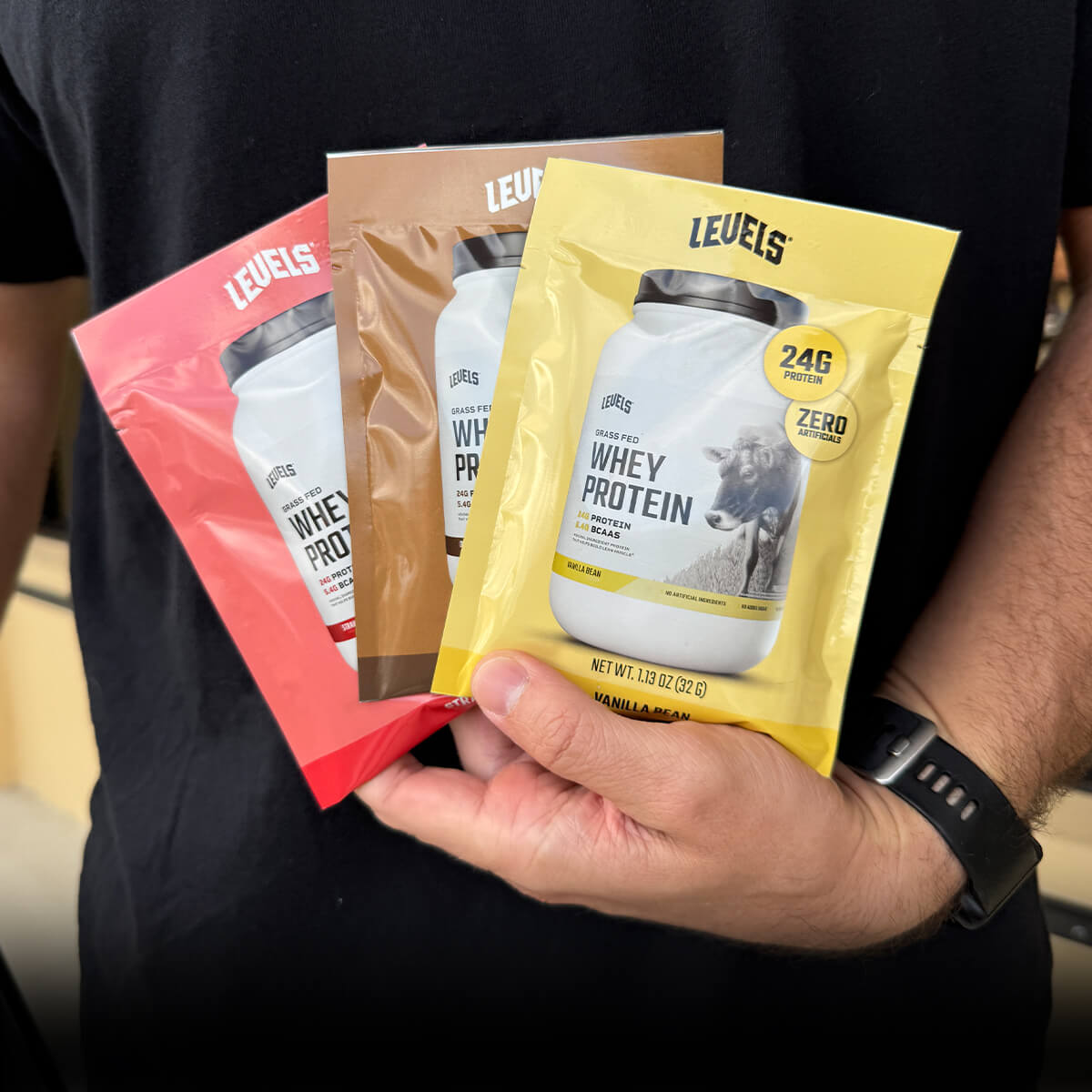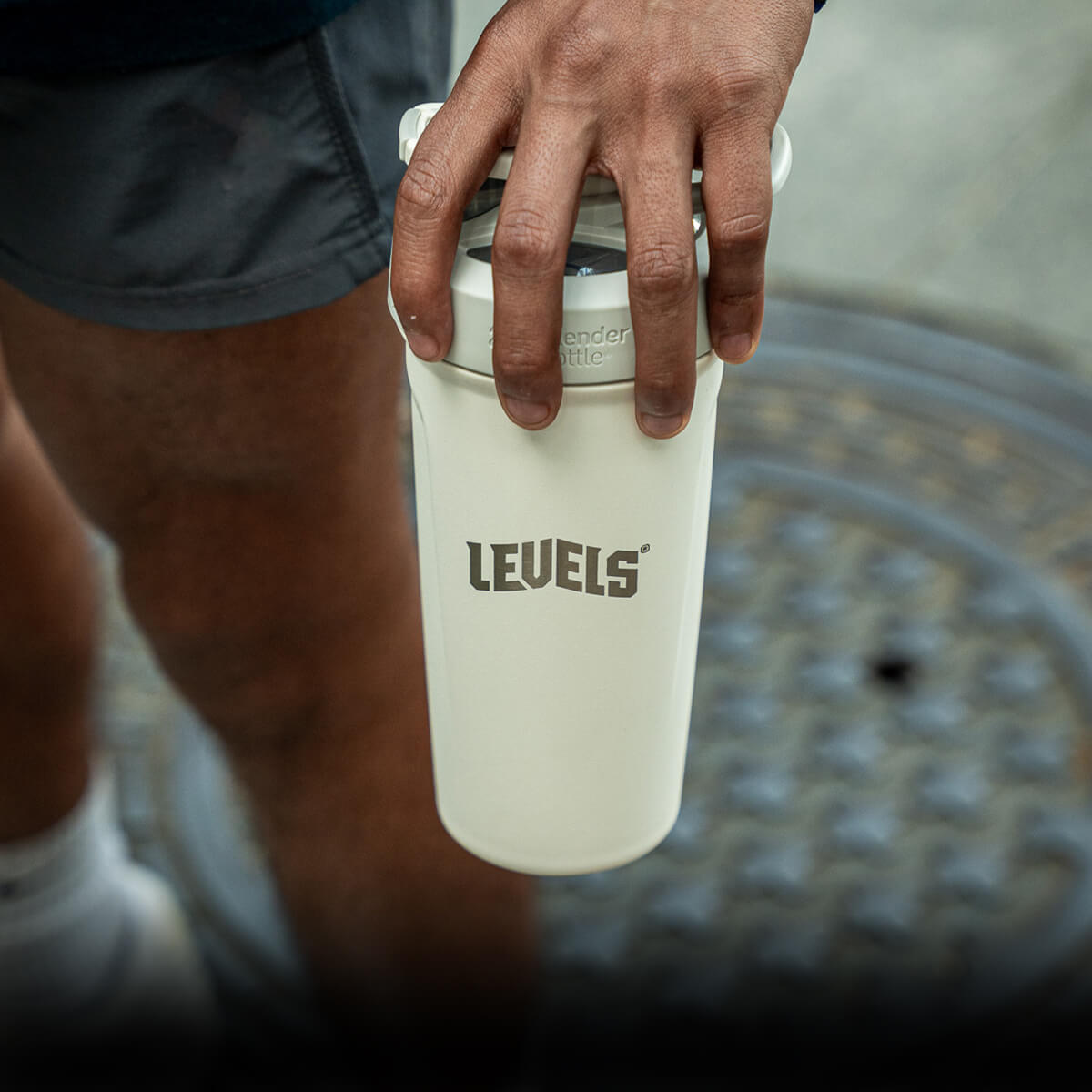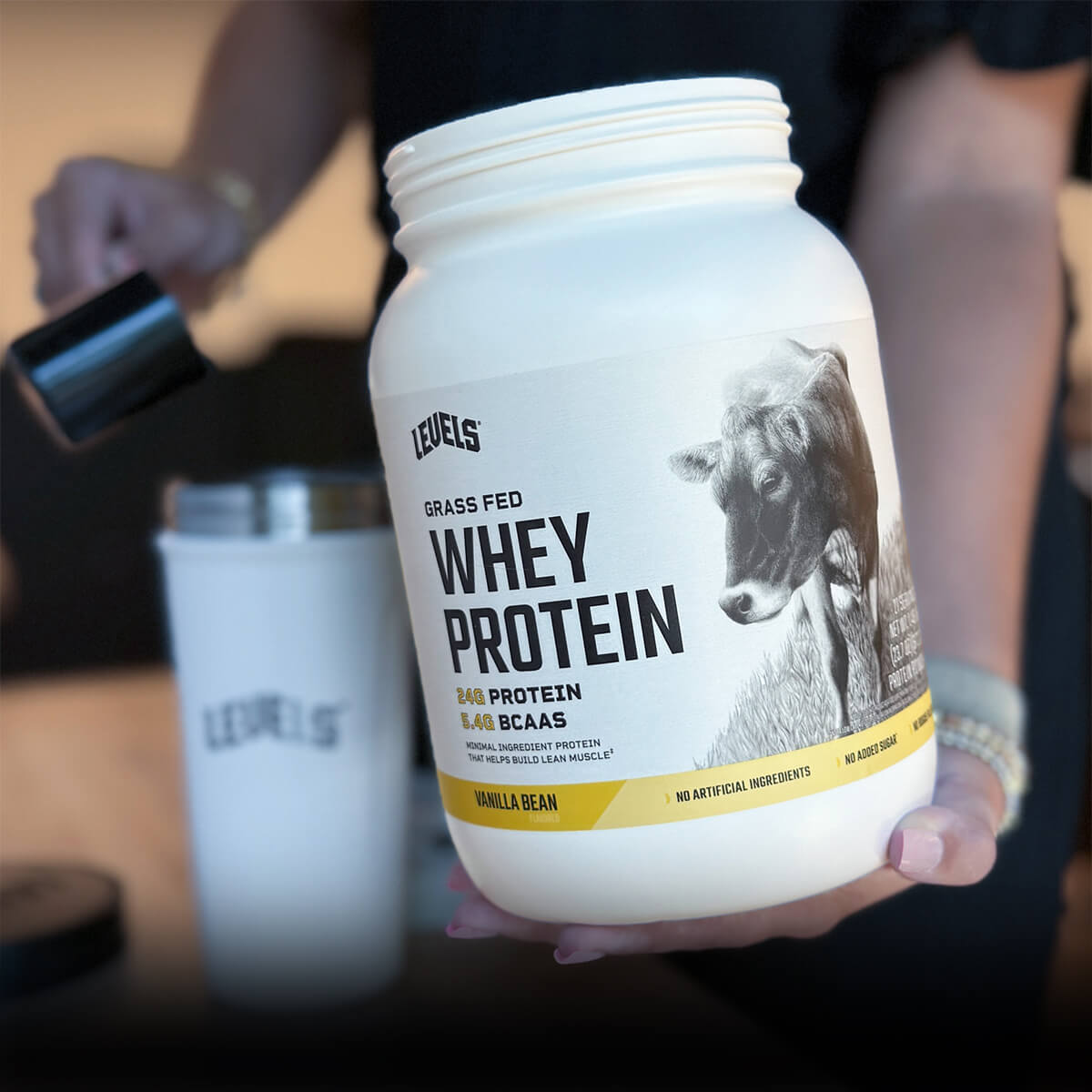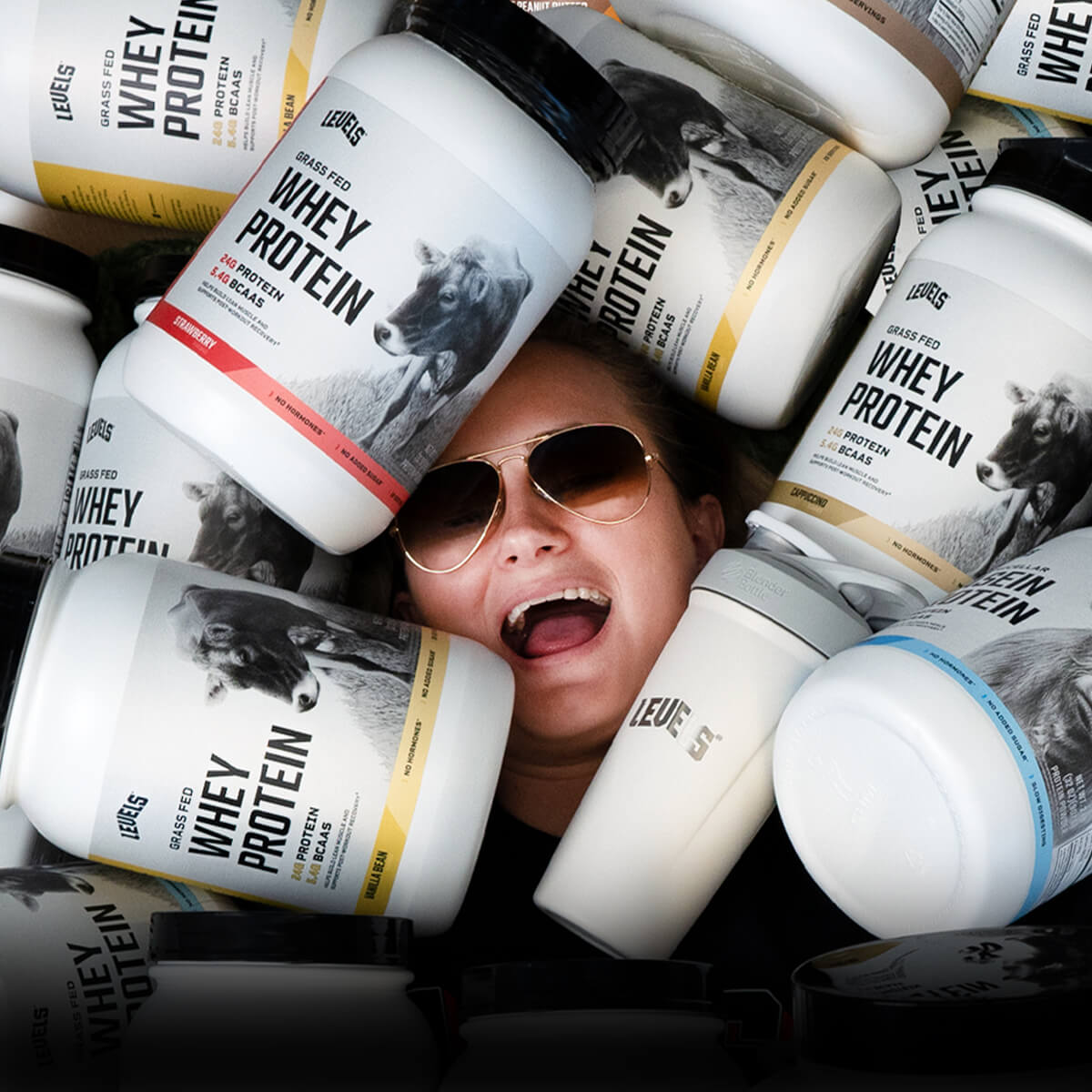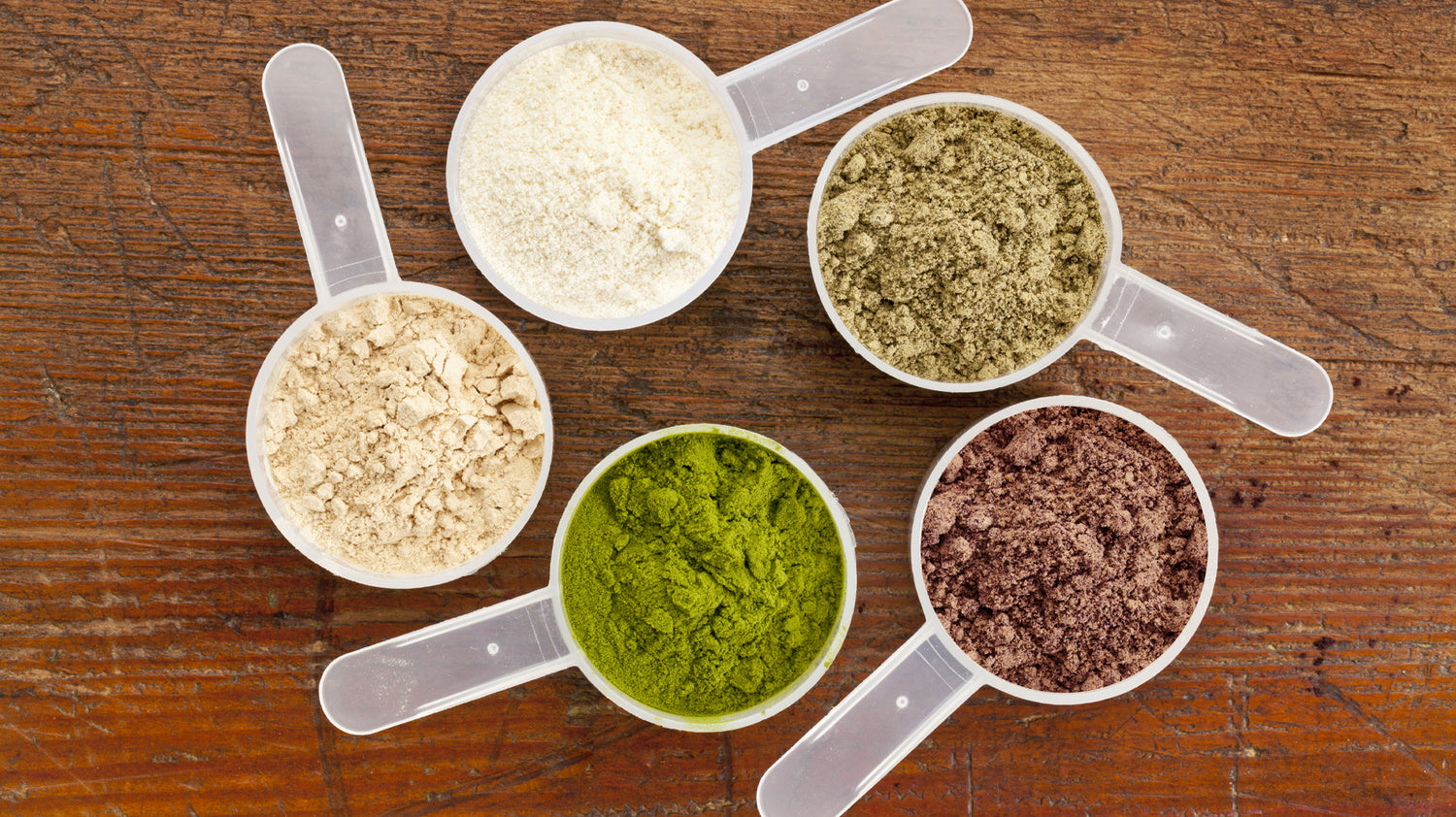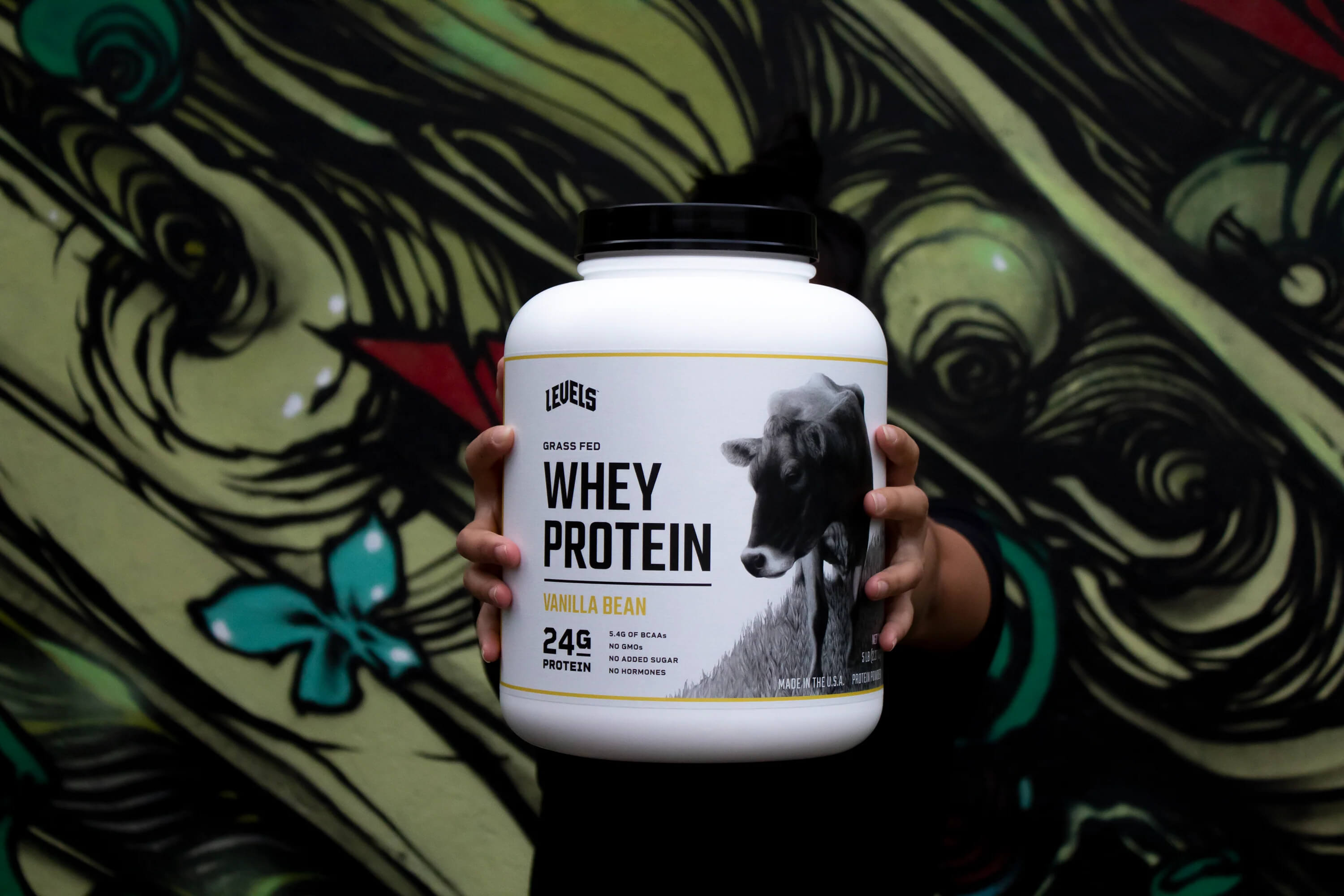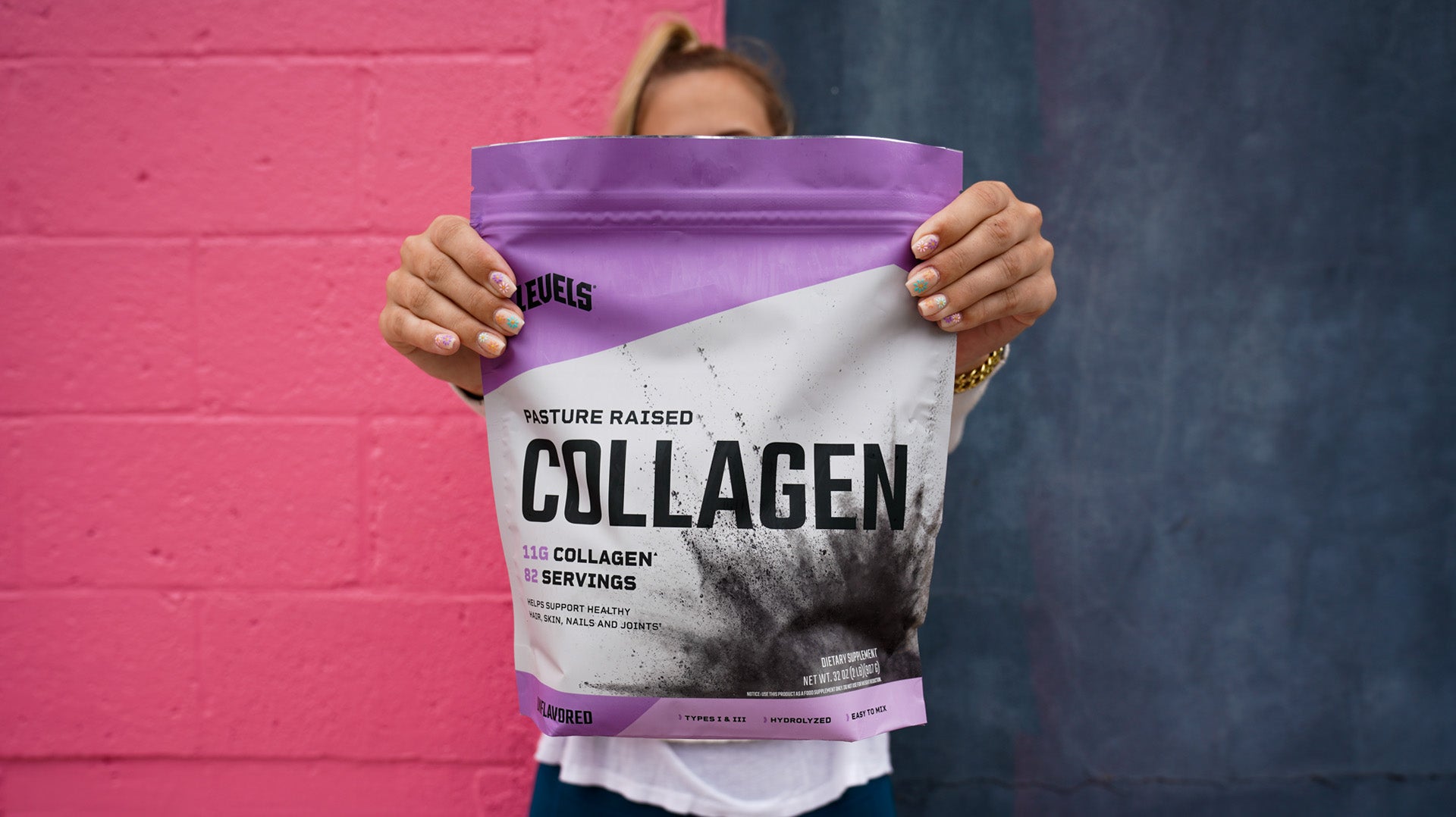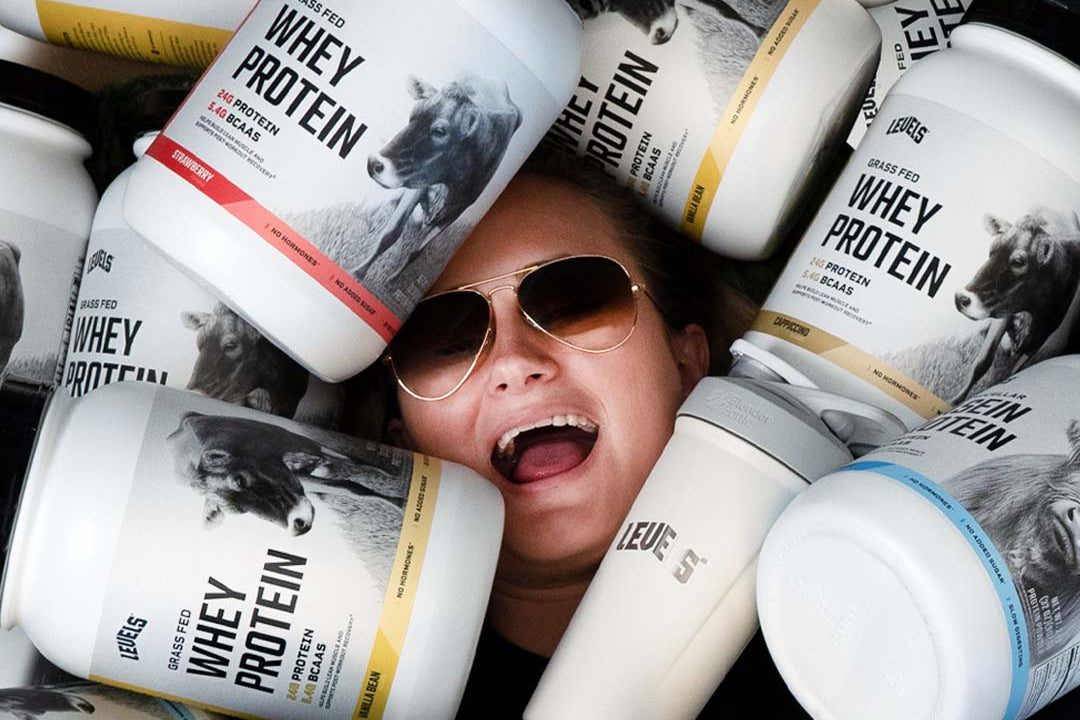If you’re trying to decide between hemp protein and whey protein, it essentially boils down to whether you’re vegan or not.
For vegetarians and omnivores who are physically active, the winner is whey protein by a long shot.
But for vegans, the answer is a little bit more complicated. Hemp protein is an acceptable protein source, but it isn’t as good as pea protein, soy protein, and other plant-based proteins.
Of course, coming from a company whose most popular product is grass-fed whey protein, that puts the burden of proof on us.
That’s why we’ve gathered all of the latest facts and studies in this article: so you can decide for yourself, based on real evidence.
Keep reading to learn how hemp protein compares to whey protein powder, what the scientific research says, facts about hemp protein, and which one you should choose for recovery, muscle-building, fat loss, and more.
Which Is Better, Hemp Protein or Whey Protein?
There are currently no head-to-head studies comparing the effects of taking hemp protein versus whey protein, but the science is clear that whey protein is a higher-quality protein than hemp protein[*].
In scientific research, “protein quality” has a very specific meaning. Protein quality scores are assigned based on the following factors[*]:
- Essential amino acid (EAA) content
- Branched-chain amino acid (BCAA) content
- Ease of digestion of amino acids
- Bioavailability of amino acids (how well your body can utilize them)
In a nutshell, animal protein sources (including whey) usually score around a perfect 100 on protein quality scales like the DIAAS (digestible indispensable amino acid scale), while hemp protein averages a subpar score of around 60.
And anything over 75 is considered a high-quality protein source[*]. As you can see, that means hemp isn’t an optimal protein source since it scores approximately 60.
Keep in mind that protein quality scoring is based on a combination of amino acid content and how well your body can digest and use them.
Plant proteins like soy and hemp are not only lower in essential amino acids than whey and other animal proteins, but are also harder to digest and absorb, which is why they receive a lower quality rating in studies[*].
Keep reading to learn what studies say about the effects of hemp and whey protein on recovery, muscle-building, fat loss, and more.
For Recovery
Unfortunately, there’s no peer-reviewed research yet investigating the effects of hemp protein on exercise recovery in physically active people.
According to the researchers at the International Society of Sports Nutrition (2017), “research that examines the ability of [hemp protein] to modulate exercise performance and training adaptations is limited at this time”[*].
In contrast, dozens of studies demonstrate that whey protein can speed recovery, help increase strength and performance, and reduce markers of muscle damage following exercise[*][*].
For Muscle-Building

Similar to exercise recovery, there simply aren’t any scientific studies yet showing a benefit to hemp protein for building muscle.
And as the authors of a 2016 scientific review state, hemp protein is lower in leucine (one of the most important BCAAs for building muscle) and contains low amounts of lysine, which are expected to limit its contribution to muscle-building[*].
On the other hand, whey protein is backed by strong evidence for increasing muscle protein synthesis and increasing muscle-building[*].
Some research also shows that consuming whey protein as part of a weight training regimen boosts muscle gains above and beyond those observed with other protein sources[*].
For Fat Loss
Increasing your protein intake to 25-30% or more of your daily calories has proven benefits for weight loss, including[*]:
- speeding up your metabolism,
- decreasing appetite, and
- increasing feelings of fullness.
You can use any combination of different protein sources to achieve this effect, including hemp protein.
That said, similar to other areas we’ve looked at, no research has shown a special fat loss benefit for hemp protein.
But some evidence suggests whey protein could work differently and better than other protein sources for reducing appetite, which could lead to greater fat loss[*].
Finally, one study found that a bodybuilding group who received whey protein combined with weight training lost 3 extra pounds of fat over 10 weeks compared to those weight trained and didn’t receive whey[*].
Flavor and Texture
Hemp protein is brownish-green in color, with a rough texture. People who enjoy it describe it as "earthy, nutty, or grassy," but many people find it too strong-tasting or gritty.
If you’ve never tried hemp protein before, you may want to sample it before buying an entire canister. That way, you can make sure the flavor and texture are tolerable.
High-quality whey protein is a yellow-white color, similar to butter or cream, with a neutral flavor. It mixes well with water, resulting in a creamy texture and mouthfeel.
Stay away from whey protein that uses artificial flavors or colors. Not only is it less healthy than all-natural grass-fed whey, but artificial ingredients are also a red flag that the manufacturer is hiding something unpleasant.
Overall Winner
When it comes to whey protein versus hemp, the clear winner is whey protein.
Whey protein receives a higher protein quality score, is backed by more research for active people, tastes better, mixes better, and is much more economical than hemp protein powder.
The Facts About Hemp Protein
Hemp protein is a plant-based protein produced by grinding hemp seeds into a fine powder.
You can find hemp protein made from dehulled seeds (also called hemp hearts) or made from hemp seeds with the hulls left on.
Protein powder made from dehulled hemp seeds has a higher protein quality score, while non-dehulled hemp protein powder has less digestible protein and more fiber content[*].
Unlike whey protein and most other forms of protein, you have to refrigerate hemp protein powder after you open it. If you don’t, the fats will spoil and turn rancid.
Hemp Protein Powder Nutrition Facts
Compared to other protein supplements, hemp protein powder is lower in protein and higher in fiber.
Per 31g serving[*]:
- Calories: 120 kcal
- Protein: 12 g
- Fiber: 11 g
- Net carbs: 2 g
- Total fats: 2 g
Is hemp protein complete?
Yes, hemp protein is a complete protein source, meaning it contains all 9 essential amino acids your body needs to survive[*].
However, compared to most other protein sources, hemp protein has some potential problems[*]:
- It contains less leucine.
- It’s low in the essential amino acid lysine.
- The amino acids in hemp protein are less digestible than animal-based sources and even some plant sources (such as soy).
All of these factors mean that despite being a complete protein, hemp protein is not as nutritious or effective compared to higher-quality sources.
Can you build muscle with hemp protein?
Unfortunately, there’s no direct evidence on the muscle-building properties of hemp protein.
But judging by the digestibility and amino acid content of hemp protein, it’s probably not very effective for building muscle compared to other protein sources, especially animal-based ones[*].
If you’re a vegan and want to build muscle, you can add BCAA supplements to your diet to help compensate for the lack of high-quality animal protein sources.
What are the benefits of hemp protein?
Although hemp protein isn’t an ideal protein source, it still has a few benefits:
- It’s very high in fiber, making it heart-healthy[*]
- It’s a good source of the minerals potassium, iron, calcium, and magnesium[*]
- Hemp protein contains antioxidants that may support cellular health[*].
- Early evidence suggests hemp protein might help reduce blood pressure[*].
It’s fair to say that hemp protein is probably good for you, even though it’s not the best protein source.
Keep reading to learn how Nutiva Vegetarian Organic Hemp Seed Protein compares to Levels Grass-fed Whey Protein.
Nutiva Hemp Protein vs. Levels Whey Protein
Nutiva Hemp Protein is a cold-processed hemp protein powder that caters to vegans.
Here are the nutrition facts (per 30g serving)[*]:
- Calories: 110 kcal
- Protein: 15 g
- Dietary fiber: 6 g
- Net carbs: 2 g
- Total fats: 2 g
- Calcium: 51 mg (4% DV)
- Potassium: 419 mg (8% DV)
- Magnesium: 246 mg (60% DV)
- Zinc: 4 mg (35% DV)
According to reviewers, the protein has a thick texture with a slightly grassy taste. People seem to appreciate the freshness and quality control of Nutiva.
It’s safe to say from the reviews that most people buy this protein for the health benefits they perceive, not primarily for flavor or enjoyment.
The cost of 3 pounds of Nutiva Hemp Protein is around $39.99, making the per-pound cost just over $13.33.
One pound of this hemp protein provides 15 servings with 15 grams of protein each, for a total of 225 grams of protein per pound.
By comparison, Levels Whey Protein is a protein supplement for vegetarians and omnivores who want the highest-quality, most effective protein source for supporting fat loss, exercise recovery, and muscle building.
Per 32g scoop, Levels Unflavored Whey contains:
- Calories: 130 kcal
- Protein: 25 g
- Net carbs: 2 g
- Total fat: 2.5 g
- Calcium: 111 mg (8% DV)
- Iron: 0.4 mg (2% DV)
- Potassium 99 mg (2% DV)
Along with unflavored whey, we also offer 100% natural flavors including Pure Chocolate, Double Chocolate, Chocolate Peanut Butter, Vanilla Bean, Cold Brew, Vanilla Cinnamon, Strawberry, and Chocolate Mocha.
We sell 5-pound canisters of grass-fed whey protein for $64.95, which comes to $12.99 per pound.
One pound of Levels Whey provides about 14 scoops of protein, each of which has 25 grams of protein. That comes out to a total of 350 g of total protein per pound of protein powder.
Pros and Cons
Nutiva Hemp Protein is vegan and Levels Whey Protein isn’t (because whey protein is made from milk), but for non-vegans, our whey protein wins in nearly every category.
Although Nutiva’s hemp has a higher content of magnesium, potassium, calcium, and zinc, we think that a well-rounded whole foods diet is the best way to get minerals and other essential nutrients.
The majority of people agree that whey protein has a superior taste and texture over plant proteins, and we think that’s doubly the case for our ultra-high-quality grass-fed whey and the hand-picked natural flavors we use.
But most importantly, one pound of Levels Protein provides 55% more protein (350 g vs 225 g) than Nutiva–and for a similar price per serving.
And as we’ve covered in the previous sections of this article, whey protein is gram-for-gram higher in EAAs and BCAAs, not to mention more bioavailable and easier to digest than hemp protein powder.
Final Thoughts
Unless you’re vegan, there’s not much reason to bother with hemp protein.
The flavor and texture aren’t ideal, and there are virtually no studies backing this plant-based protein.
Even compared to other plant protein sources, hemp protein powder is relatively low in essential amino acids and hard to digest.
High-quality grass-fed whey protein tastes better, is backed by tons of research, and offers much more bang for your buck.
